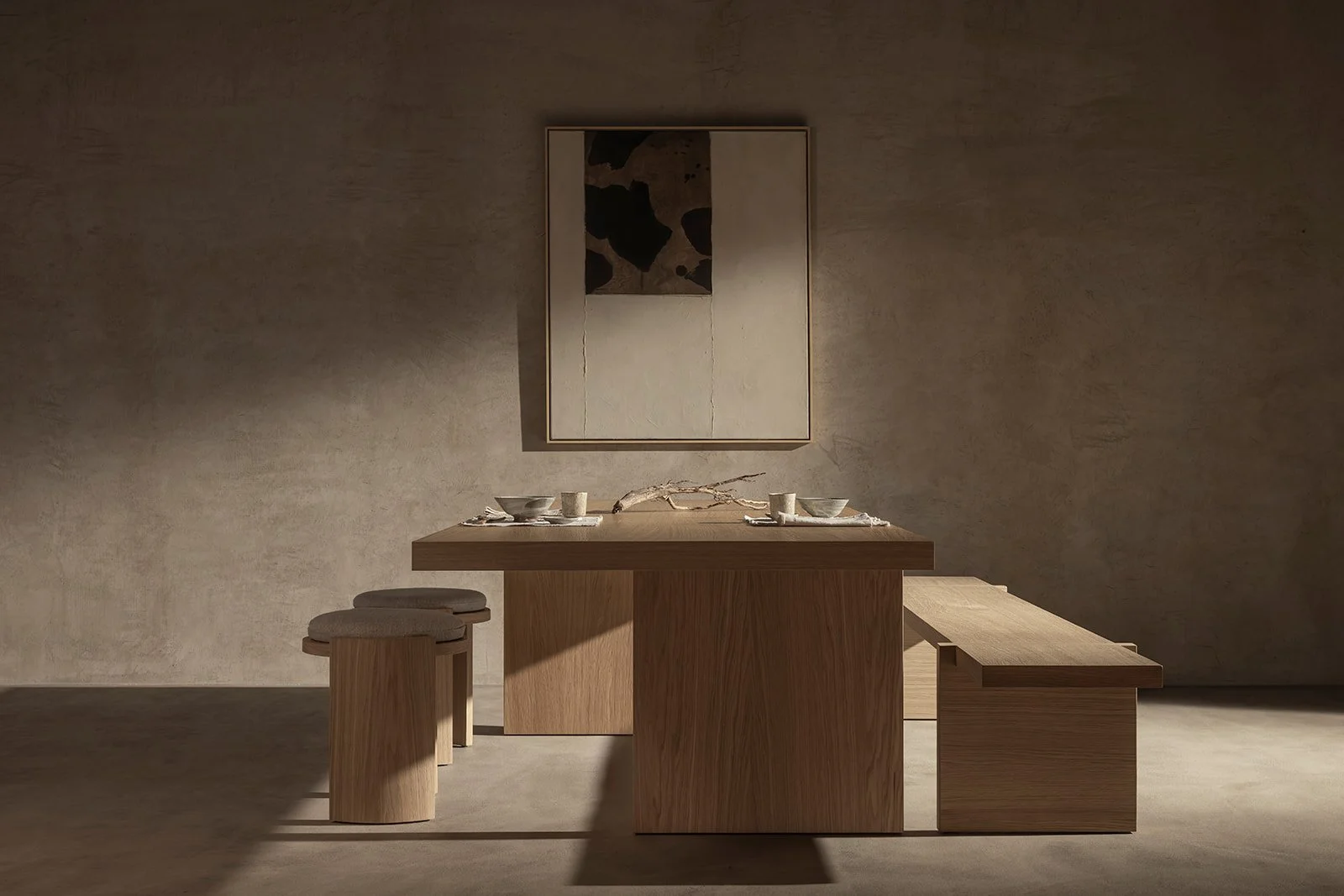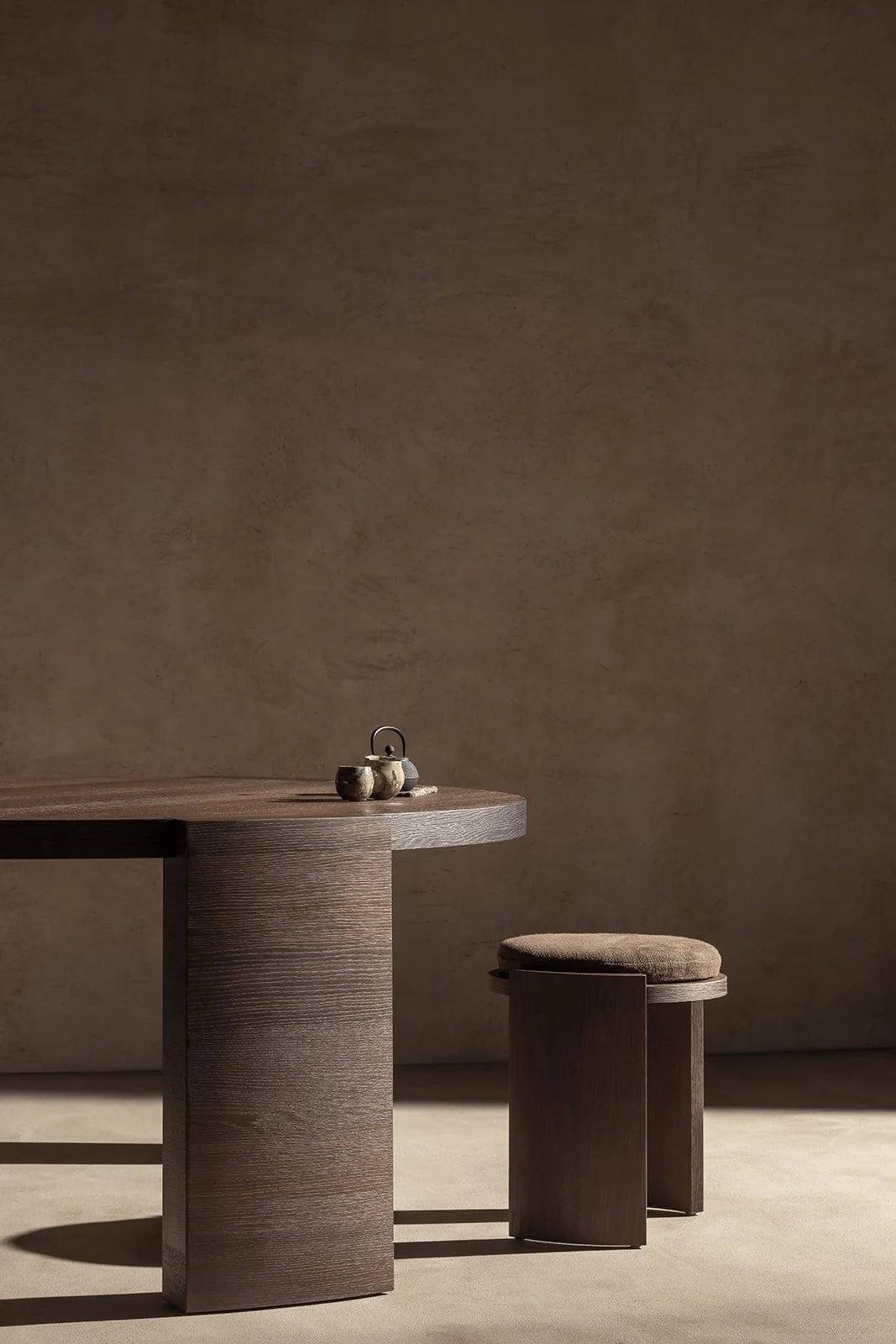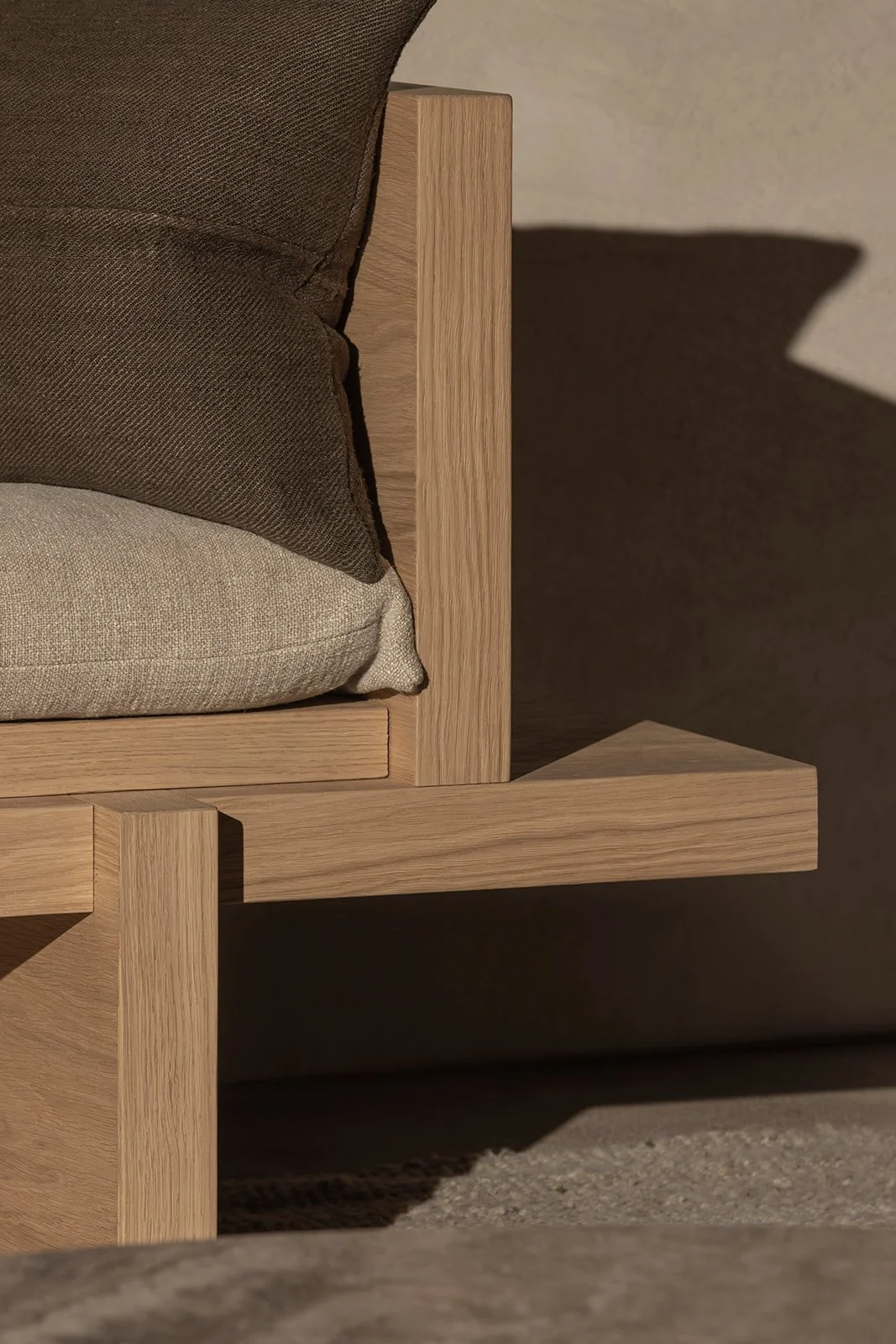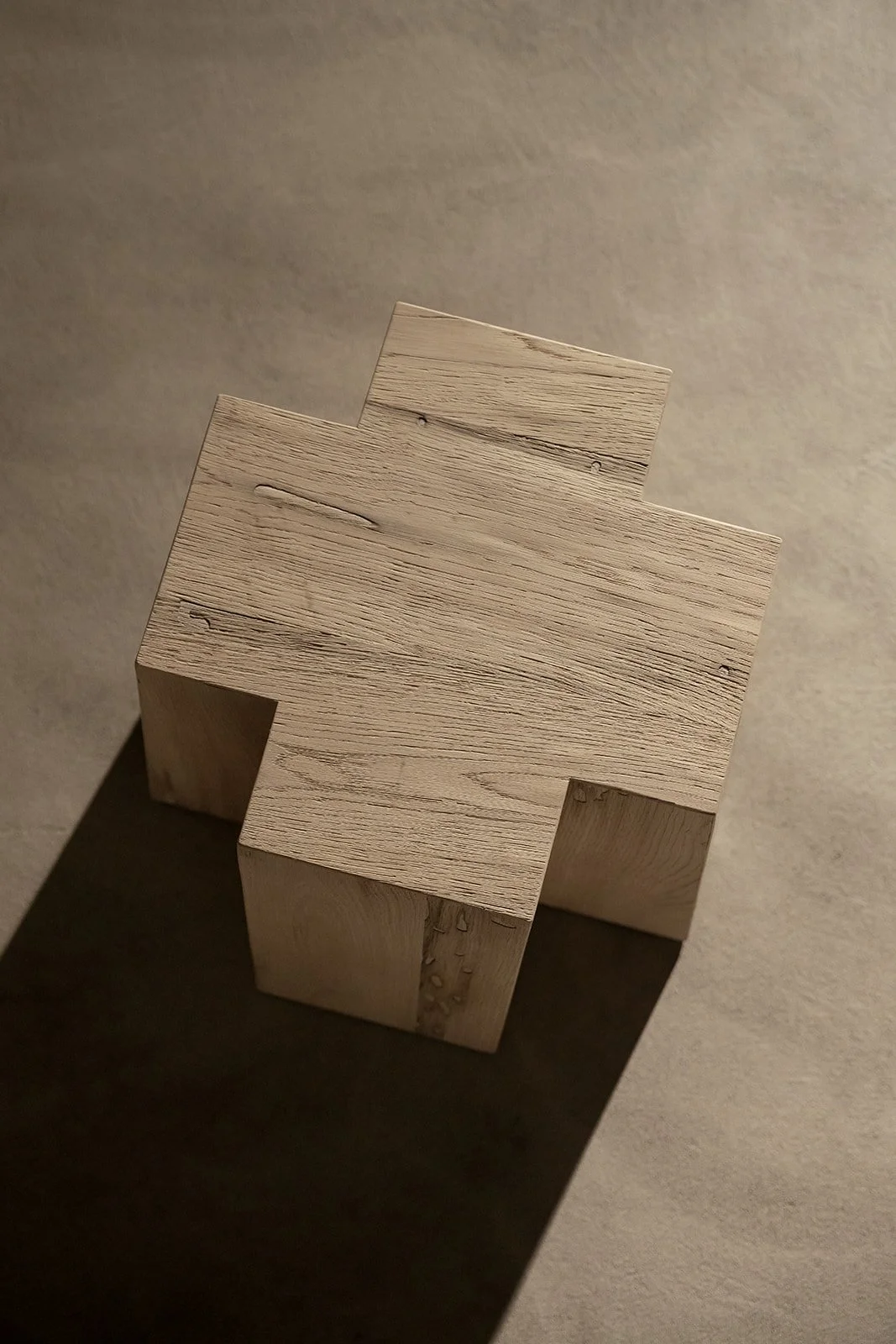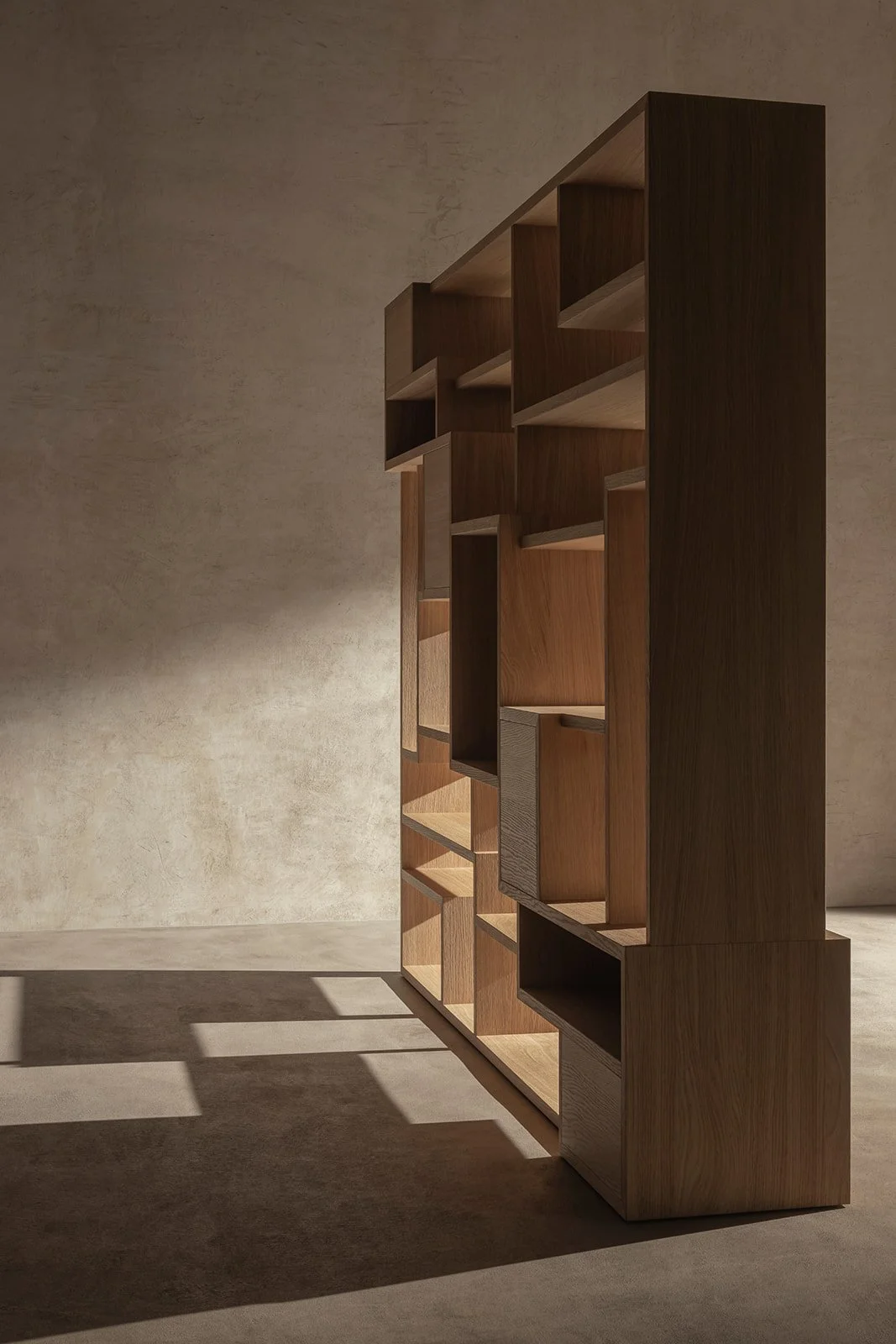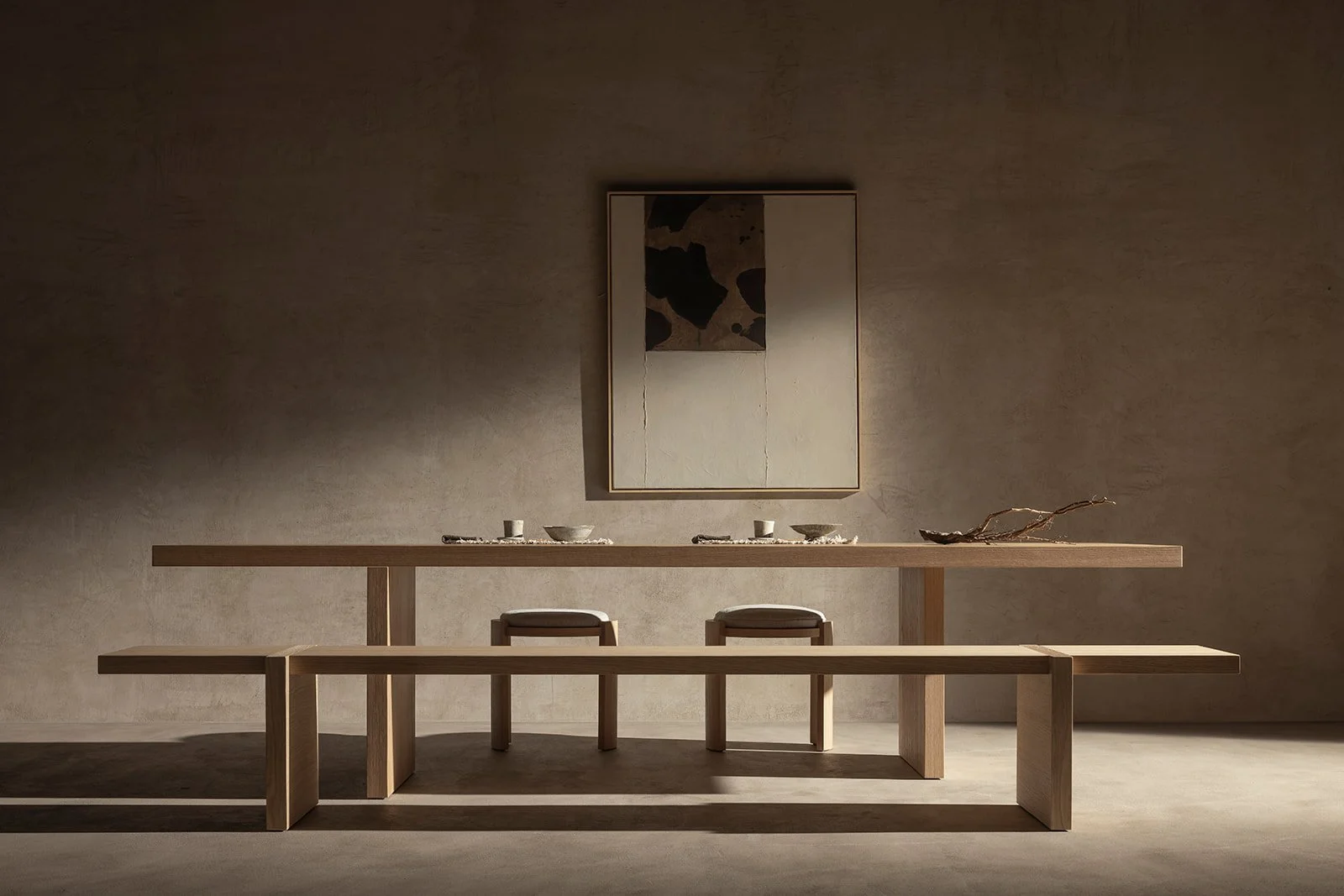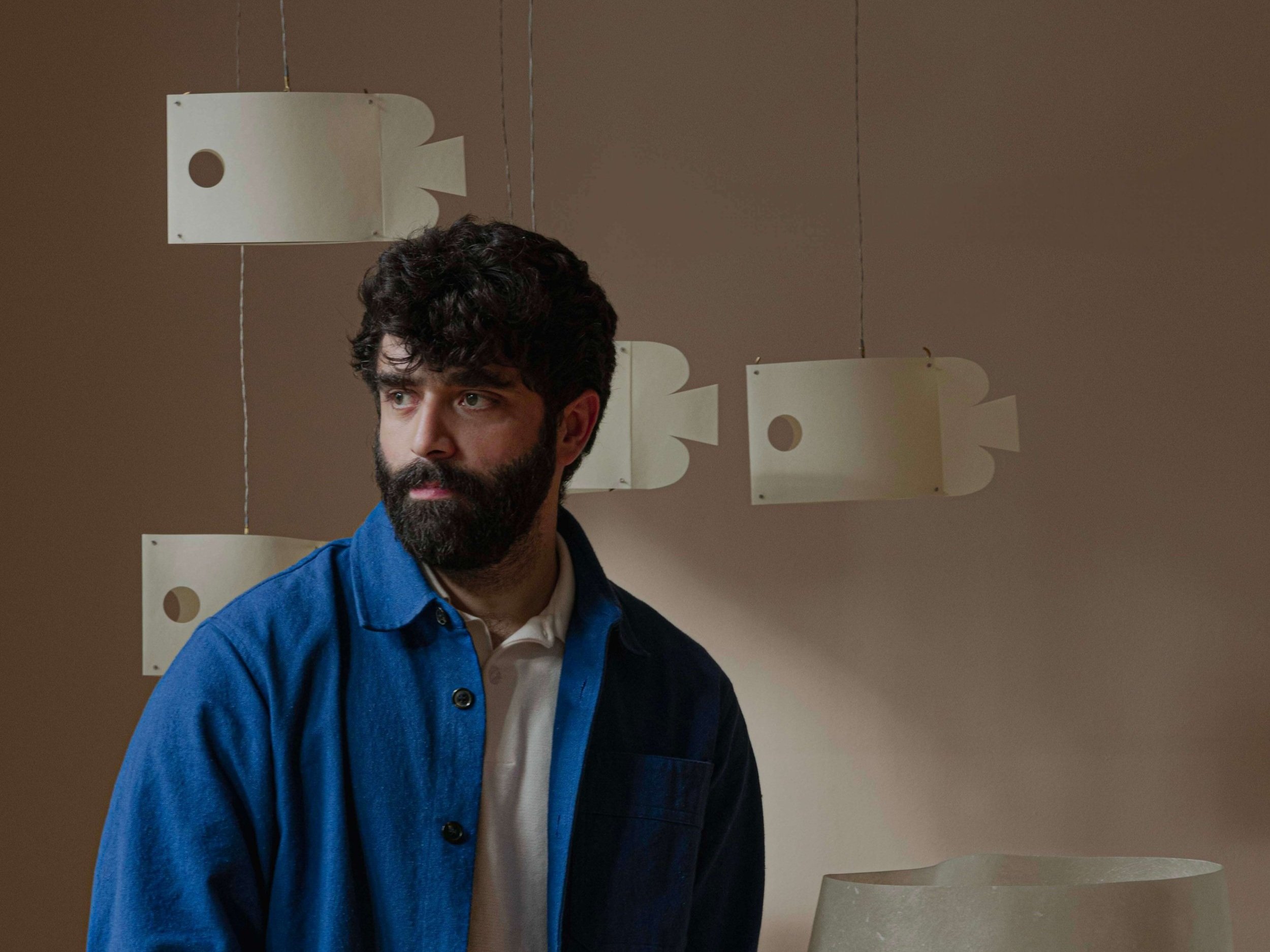KĀNA Objects: Natural Materials in Handmade Furniture
people • makers
KĀNA, by Inge Lagae, creates beautiful furniture, handmade in Belgium and Italy with natural materials. Inspired by traveling the world, they create furniture with a soul. Timeless craftsmanship that will be a part of the family for years to come.
WEBSITE: kanaobjects.com INSTAGRAM: @kana_editions
Words: designeers
october 2024
designeers
Origins and Inspiration:
inge lagae
Three years ago, I started the project Kana because the logistics and project management involved in the renovations I undertook as an interior designer had become overwhelming. The creative aspect of design was increasingly sidelined, and I realised that I found true satisfaction only in projects where I could also design all the furniture. Some of these furniture designs were later reproduced for other clients upon request and for several architects who wanted to incorporate them into their projects. This led to the idea of creating a curated collection of designs specifically for the Belgian market. I saw a gap in the market for collections that offered customisation based on existing pieces. Two years ago, I edited the first price list and launched the website as an online catalogue. Today, most of my business comes from international clients, and I have established a showroom where architects and interior designers can shop with their clients 20 minutes from Brussels airport.
designeers
Philosophy and Aesthetic:
inge lagae
I design only the furniture I would want in my own home. I’m far from a typical product designer concerned with economic feasibility or flat-pack shipping. For a short time, I worked with two Italian brands, but I soon stopped because I couldn't pursue my own vision. For me, aesthetics, the quality of materials, and craftsmanship are as essential as functionality—perhaps even more so. Each piece I create is designed as an object, where the back of a cabinet is as beautiful as the front. These pieces don’t have to be used, yet they are fully functional. I believe this is the key to Kana’s success: timeless furniture objects that complement a wide range of interior styles and can be passed down from generation to generation, much like the handmade pieces from our grandparents’ time.
Everything is made by hand, locally, using materials I personally select from the timber merchant, ensuring I have complete control over the final product. I’m drawn to warm minimalism in my designs but have an aversion to anything banal. That’s why I always strive to combine clean lines with sophisticated craftsmanship—large spans, floating surfaces, or legs that need to be meticulously integrated.
I had the privilege of spending eight years working on the realization of the series Opera Domesticafrom architect and artist Ola-dele Kuku. I was his right hand, and he was my mentor. He taught me never to shy away from any challenge in construction. It was an extraordinary apprenticeship, though my approach differs entirely from his. While he created those objects steeped in symbolism, I focus on designing functional furniture objects with the same attention to detail and precision.
designeers
The choice of materials plays a crucial role in your creations. Could you tell us more about the materials you prefer to work with and why they are significant to Kana Objects' identity?
inge lagae
The defining characteristics of the KANA collection are always preserved, such as the thickness of the construction, a certain sophistication in the structural design, and the use of authentic materials like smoked oak or bog oak. These woods are never artificially coloured; instead, they retain their natural hues and are hand-brushed to bring out a deep, organic texture. This process gives the material a beautifully rich structure that feels both natural and refined.
My favourite woods are all varieties of oak because they respond so beautifully to brushing. Bog oak is my top choice due to its unique and varied colour, which is determined by the number of years the tree has lain submerged in water. The colour can range from light grey and greenish-brown to deep black. For my latest design, I experimented with Venetian oak, sourced from the mooring posts in the waters of Venice. The veneer is applied to an oak base, resulting in a wonderfully weathered yet subtle effect.
designeers
Do you have a favourite piece in the Kana Objects collection? What makes it particularly special to you?
inge lagae
My favourite design is undoubtedly the Yoishu daybed, which I specifically created to establish a collaboration with Isabelle Yamamoto, a textile designer who crafts objects from vintage hemp fabrics. For this design, she made the futon and the headrest, both with the same emphasis on organic and raw materials. Our designs complement each other beautifully; she has since also designed the zabutons for the Hiku tea table, and we continue to collaborate on new projects. I love the idea of collaborating with other designers to create something truly beautiful together.
“I view the furniture designs from KANA as 'syllables' that, through various combinations in different projects, result in a unique 'sound' each time.”
inge lagae
designeers
Sustainability is a growing focus in design today. How does Kana Objects incorporate sustainable practices into its production process, and what challenges have you faced in doing so?
inge lagae
I am deeply committed to sustainability, which is why I have chosen to produce everything locally. This decision does result in slightly higher production costs compared to sourcing from Eastern European countries, but I remain true to my principles. I also select the wood from local timber merchants, using its natural colour to ensure it develops a beautiful patina and does not discolour over time—a common issue with stained woods. This approach helps the pieces retain their beauty for generations. Additionally, I only use thick veneer or solid wood so that they can be refinished if necessary. My motto is, after all, "Timeless beauty to pass on."
designeers
Who is your design hero, and how have they influenced your work with Kana Objects?
inge lagae
There are countless designers whose iconic work I deeply admire. Naming just one from among the many talented individuals would be unfair to the others, so I prefer to refer to my mentor: architect, philosopher, and artist Ola-dele Kuku. I have learned an immense amount from him. Our intense eight-year collaboration has shaped me into who I am today—through tears and sweat, but also with the most beautiful memories. He had a strong aversion to compromise and taught me the value of perfectionism. As a result, I am never fully satisfied with a design; I always have the tendency to keep refining it. Often, it is those around me who signal that it’s finally time to bring a project to fruition (laughs).
designeers
What’s your favourite hotel in the world, and why? Does it inspire your work in any way?
inge lagae
There are so many beautiful hotels around the world, but my favourites are those where I truly feel at home, in a serene environment. If I had to mention one, it would be Maana Homes in Japan, which I have not visited yet. I am certain I will book a stay there on my next trip to Asia. It’s not just because their projects are deeply authentic and distinctly Japanese, but mainly because of the sense of tranquility they exude, which immediately gives me that feeling of being at home.
I am often asked if I draw inspiration from Japanese culture, and to some extent, I do. Japan is renowned for its minimalism, organic forms, and use of authentic materials, all in complete harmony with nature. This aligns perfectly with KANA’s philosophy, which aspires to sustainable living and timelessness. KANA refers to the Japanese writing system, comprising two parallel modern syllabaries (katakana and hiragana), each of which independently represents all the sounds of the Japanese language. Similarly, I view the furniture designs from KANA as 'syllables' that, through various combinations in different projects, result in a unique 'sound' each time.
designeers
What’s next for Kana Objects? Are there any upcoming projects, collaborations, or expansions that you’re particularly excited about?
inge lagae
I am working on several new projects in collaboration with various designers and artists. I am particularly intrigued by the surprising results that such collaborations can yield. They are often quite unpredictable, as they usually go through different phases. New releases and limited editions are always announced on the website and through the newsletter. We also regularly host open days and exhibitions at our showroom in Belgium. I am considering taking KĀNA to Milan for the Salone del Mobile this year, though the specifics of how and where are still to be determined. In the meantime, professionals are always welcome to visit the showroom.


